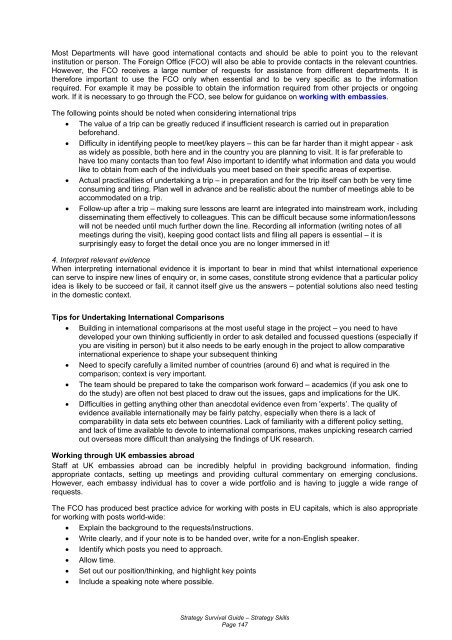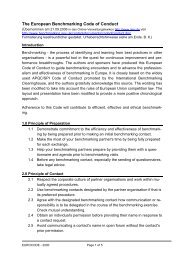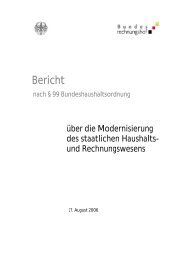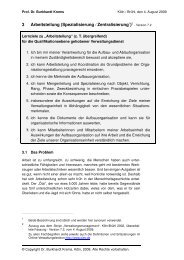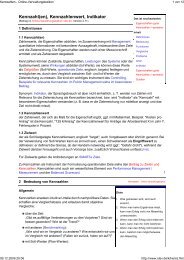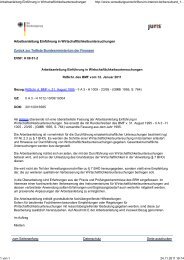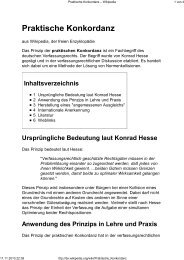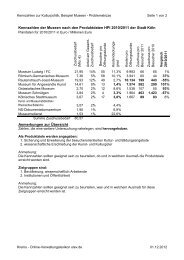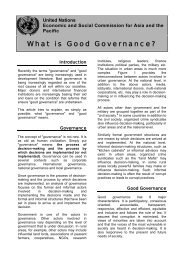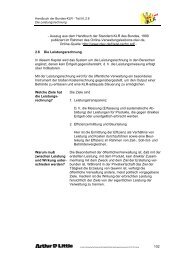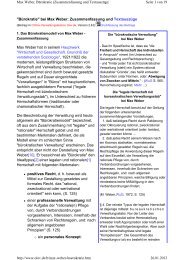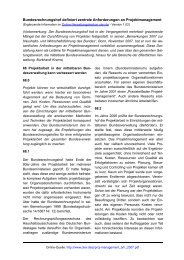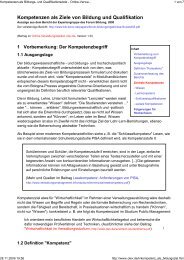Strategy Survival Guide
Strategy Survival Guide
Strategy Survival Guide
Create successful ePaper yourself
Turn your PDF publications into a flip-book with our unique Google optimized e-Paper software.
Most Departments will have good international contacts and should be able to point you to the relevant<br />
institution or person. The Foreign Office (FCO) will also be able to provide contacts in the relevant countries.<br />
However, the FCO receives a large number of requests for assistance from different departments. It is<br />
therefore important to use the FCO only when essential and to be very specific as to the information<br />
required. For example it may be possible to obtain the information required from other projects or ongoing<br />
work. If it is necessary to go through the FCO, see below for guidance on working with embassies.<br />
The following points should be noted when considering international trips<br />
• The value of a trip can be greatly reduced if insufficient research is carried out in preparation<br />
beforehand.<br />
• Difficulty in identifying people to meet/key players – this can be far harder than it might appear - ask<br />
as widely as possible, both here and in the country you are planning to visit. It is far preferable to<br />
have too many contacts than too few! Also important to identify what information and data you would<br />
like to obtain from each of the individuals you meet based on their specific areas of expertise.<br />
• Actual practicalities of undertaking a trip – in preparation and for the trip itself can both be very time<br />
consuming and tiring. Plan well in advance and be realistic about the number of meetings able to be<br />
accommodated on a trip.<br />
• Follow-up after a trip – making sure lessons are learnt are integrated into mainstream work, including<br />
disseminating them effectively to colleagues. This can be difficult because some information/lessons<br />
will not be needed until much further down the line. Recording all information (writing notes of all<br />
meetings during the visit), keeping good contact lists and filing all papers is essential – it is<br />
surprisingly easy to forget the detail once you are no longer immersed in it!<br />
4. Interpret relevant evidence<br />
When interpreting international evidence it is important to bear in mind that whilst international experience<br />
can serve to inspire new lines of enquiry or, in some cases, constitute strong evidence that a particular policy<br />
idea is likely to be succeed or fail, it cannot itself give us the answers – potential solutions also need testing<br />
in the domestic context.<br />
Tips for Undertaking International Comparisons<br />
• Building in international comparisons at the most useful stage in the project – you need to have<br />
developed your own thinking sufficiently in order to ask detailed and focussed questions (especially if<br />
you are visiting in person) but it also needs to be early enough in the project to allow comparative<br />
international experience to shape your subsequent thinking<br />
• Need to specify carefully a limited number of countries (around 6) and what is required in the<br />
comparison; context is very important.<br />
• The team should be prepared to take the comparison work forward – academics (if you ask one to<br />
do the study) are often not best placed to draw out the issues, gaps and implications for the UK.<br />
• Difficulties in getting anything other than anecdotal evidence even from 'experts’. The quality of<br />
evidence available internationally may be fairly patchy, especially when there is a lack of<br />
comparability in data sets etc between countries. Lack of familiarity with a different policy setting,<br />
and lack of time available to devote to international comparisons, makes unpicking research carried<br />
out overseas more difficult than analysing the findings of UK research.<br />
Working through UK embassies abroad<br />
Staff at UK embassies abroad can be incredibly helpful in providing background information, finding<br />
appropriate contacts, setting up meetings and providing cultural commentary on emerging conclusions.<br />
However, each embassy individual has to cover a wide portfolio and is having to juggle a wide range of<br />
requests.<br />
The FCO has produced best practice advice for working with posts in EU capitals, which is also appropriate<br />
for working with posts world-wide:<br />
• Explain the background to the requests/instructions.<br />
• Write clearly, and if your note is to be handed over, write for a non-English speaker.<br />
• Identify which posts you need to approach.<br />
• Allow time.<br />
• Set out our position/thinking, and highlight key points<br />
• Include a speaking note where possible.<br />
<strong>Strategy</strong> <strong>Survival</strong> <strong>Guide</strong> – <strong>Strategy</strong> Skills<br />
Page 147


